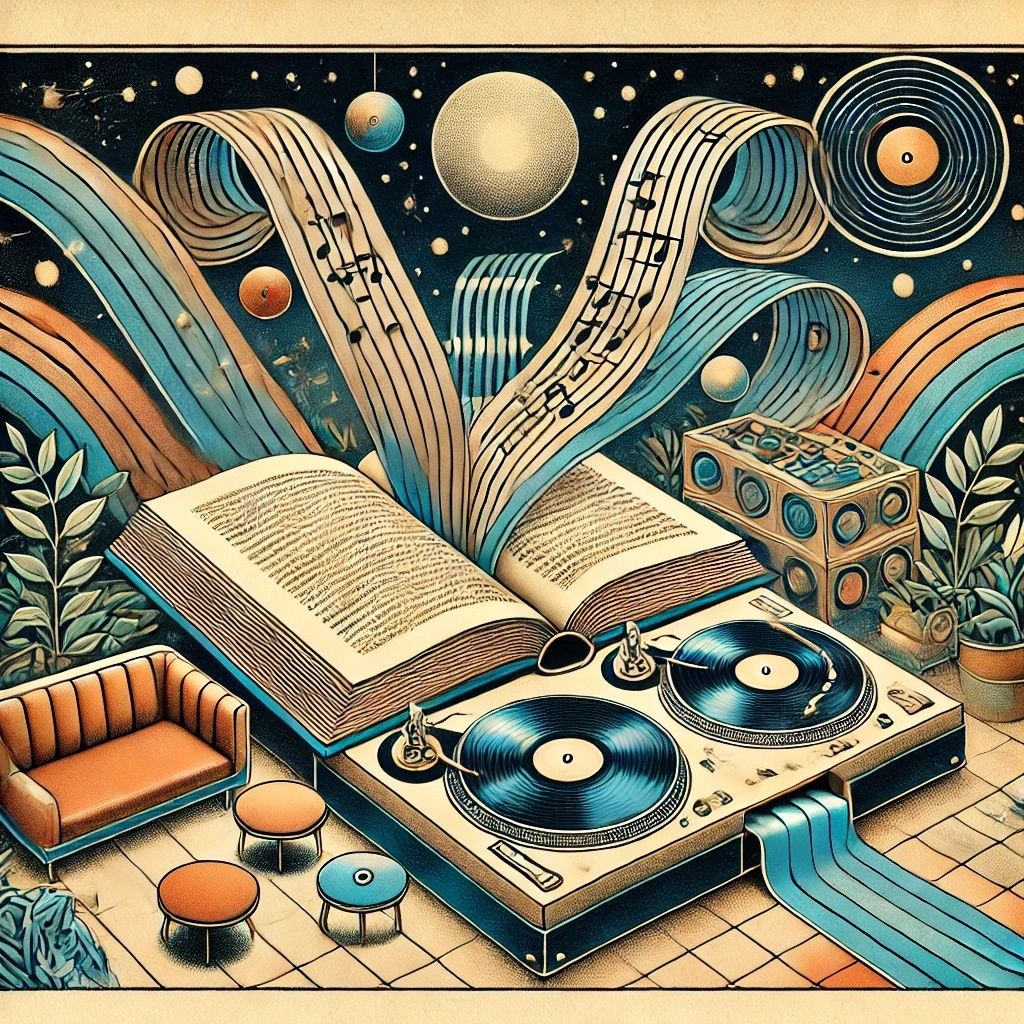“I used to do drugs. I still do, but I used to, too.” — Mitch Hedberg
Broke my leg playing pickup football. No disability insurance for sales reps working retail at the mall. A friend put in a word for me at his job. A nightclub — where I was able to serve drinks from a stool. Great people, great atmosphere. Best job I ever had.
Made friends easily. One was a DJ who gave me the three tenets: always play for the ladies, learn to beat-match, and master song selection. With what little money I had I became a DJ.
I have been many things. My three favorites: DJ, programmer, writer. This intersection helps me make sense of the current AI vs. writers conversation. I think, with little doubt, that the 2020s will be remembered as the decade writers became more respected, more influential, and made more money.
Serato, for those unaware, was a hardware/software package that let DJs play MP3s on vinyl. it automated beat-matching and other core mechanics. The cost of becoming a DJ dropped from thousands to hundreds. Music once reserved for those with special connections or stamped passports became simple downloads. The forecast was grim.
Why do we need DJs anymore?
What is a DJ being paid to actually do?
Why can’t a machine do this?
Serato removed technical barriers but couldn’t plan a set, decide what music to download, or read a crowd. Audiences quickly noticed — the meandering sets, nonsensical transitions, poor song choices.
Lethargic dance floors, frustrated staff, negative reviews. Club owners relented. But the DJs didn’t return with gratitude. They had refined their skills. They became producers, performers, and self-promoters. Some formed unions, collectives, to secure fair pay.
Like Serato, AI flooded the market. Publishers and platforms use it to diminish the value of professional writers.
Why do we need writers anymore?
What is a writer being paid to actually do?
Why can’t we do this with AI?
Readers will notice — the emptiness, repetition, and lack of heart. Famished audiences will crave originality, nuance, and the subtle soul beneath the prose.
Writers, once pushed aside, will return. Platforms seeking to reclaim credibility and disengaged readership will relent. Industry’s embrace of AI will demonstrate that craftsmanship can‘t be automated. AI isn’t an obstacle for writers; it’s a confirmation of their value.
Skilled writers will become publishers, curators, platform owners, and arbiters of quality — shaping conversations and setting trends.
Subscriptions, self-publishing, and licensing will be well-earned symbols of status. As automation consolidates, so will patronage. Readers will pay for acuity, fidelity, and resonance.
I was almost thirty when I packed away the turntables. Picked up HTML 4 in 24 hours and traded music for markup. Had to “get serious.” Eventually, I played again, for myself, at home. No crowd, no pressure, just music and memories.
Two years ago, I mentioned my home setup to an old DJ friend. A week later, I had a gig.
History doesn’t repeat, but it rhymes. AI won’t devalue writing. It will show, undeniably, the worth of those who love it most.

